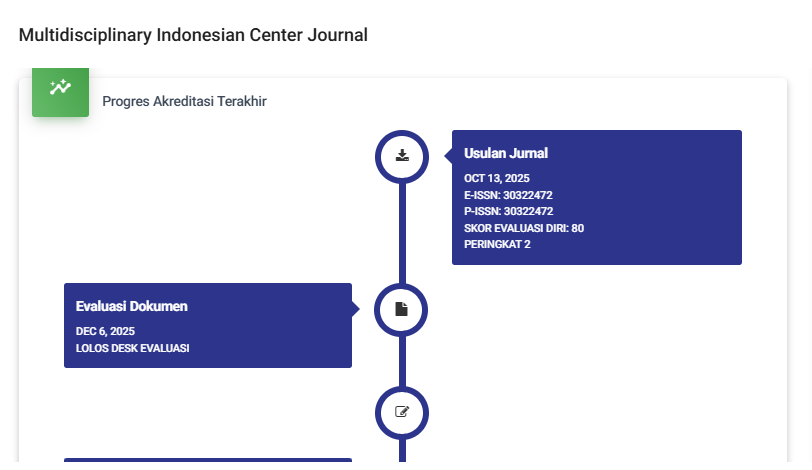INTEGRATING MENTAL AND SPIRITUAL HEALTH: INSIGHTS FROM THE HADITH ON MENTAL ILLNESS
DOI:
https://doi.org/10.62567/micjo.v2i2.683Keywords:
hadith tradition, holistic medicine, islamic counseling, psychotherapy, spiritual dimensionAbstract
This research focuses on eight mental illnesses listed in the hadiths narrated by Imam al-Bukhari and their implications for modern mental health understanding and practice. Employing a literature review methodology, this study analyzes and discusses the relevance of these mental illnesses—distress, sorrow, weakness, laziness, miserliness, cowardice, being debt-burdened, and being overpowered by others—in the context of contemporary psychology. The findings suggest that Islamic concepts of mental illnesses can provide new insights into therapeutic and clinical approaches, offering a framework for the integration of mental and spiritual health. The conclusion of this research emphasizes that integrating Islamic values into clinical psychology practices not only enriches theoretical understanding but also enhances the effectiveness of mental health interventions. The study further recommends the development of therapeutic programs that incorporate Islamic teachings, to support more inclusive and culturally sensitive mental health therapy approaches.
Downloads
References
Ahmad, W., Rahman, A., & Seman, A. (2022). Religion, islamic values and debt management, the malaysian experience., 211-226. https://doi.org/10.1007/978-981-19-3686-9_14
Ali-Asghar, S. and Otaghi, M. (2022). Relevance between faith to god and health dimensions in the holy quran: a content analysis. International Journal of Health Sciences, 5342-5351. https://doi.org/10.53730/ijhs.v6ns6.11723
Alim, F., Saman, A., & Jaya, P. (2023). Profesionalisme guru bk melaksanakan konseling individu dengan pendekatan rebt dalam mengatasi kesedihan siswa. Indonesian Journal of School Counseling Theory Application and Development, 2(2), 114. https://doi.org/10.26858/ijosc.v3i1.31053
Baitanu, Y. (2023). Orang rajin dan kemalasan menurut amsal 12:24 sebagai prinsip kerja bagi para pekerja kristen masa kini. Jurnal Teologi Injili, 3(1), 37-49. https://doi.org/10.55626/jti.v3i1.50
Biplob, H., Abdullah, M., & Hossain, G. (2022). An islamic debt and wealth management framework in the context of malaysia. The Journal of Muamalat and Islamic Finance Research, 41-57. https://doi.org/10.33102/jmifr.v19i2.460
Dirie, K., Alam, M., & Maamor, S. (2023). Islamic social finance for achieving sustainable development goals: a systematic literature review and future research agenda. International Journal of Ethics and Systems, 40(4), 676-698. https://doi.org/10.1108/ijoes-12-2022-0317
Dwinanda, P., Shofiah, V., & Rajab, K. (2023). Psikoterapi islam: model psikoterapi taqwa. Psikobuletin Buletin Ilmiah Psikologi, 4(3), 222. https://doi.org/10.24014/pib.v4i3.21830Ariawan, S., Solehuddin, M., Rizaq, M., Warman, A., & Fathurohman, A. (2022). Peran al-quran dalam meningkatkan pemahaman pembelajaran qur’an hadits. El-Hekam, 7(2), 278. https://doi.org/10.31958/jeh.v7i2.8608
Habibie, M. and Cahyadi, M. (2024). Peranan muhasabah sebagai upaya dalam menghadapi krisis kepercayaan diri remaja. Mutiara, 2(4), 210-218. https://doi.org/10.59059/mutiara.v2i4.1485
Hasan, N. (2019). Elemen-elemen psikologi islami dalam pembentukan akhlak. Spiritualita, 3(1), 105-124. https://doi.org/10.30762/spr.v3i1.1516
Hasmiansyah, R., Fauzan, A., & Samsudin, M. (2021). Analisis pemikiran psikologi islam (studi terhadap konsep psikologi islam dalam pandangan hasan langgulung). Jurnal Diversita, 7(1), 63-71. https://doi.org/10.31289/diversita.v7i1.4666
Hastutik, N. and Nurzaman, M. (2019). Efficiency analysis of zakat intitutions in indonesia by using data envelopment analysis (dea).. https://doi.org/10.4108/eai.8-10-2018.2288725
Hidayat, A., Safni, P., Padila, C., Afnibar, A., & Ulfatmi, U. (2024). Quarter-life crisis phenomenon (views and solution according to islamic psychology). ittihad, 10(1), 1-12. https://doi.org/10.61817/ittihad.v10i1.127
Hossain, B., Hossain, A., Hossain, G., & Likhon, T. (2024). Islamic perspective of household debt management: an in-depth study. International Journal of Science and Business, 31(1), 103-114. https://doi.org/10.58970/ijsb.2279
Kailani, N. and Sláma, M. (2019). Accelerating islamic charities in indonesia:zakat,sedekahand the immediacy of social media. South East Asia Research, 28(1), 70-86. https://doi.org/10.1080/0967828x.2019.1691939
Kristiawan, R. (2024). Kemalasan dalam perspektif kitab amsal. JUITA, 1(1), 22-32. https://doi.org/10.69668/juita.v1i1.5
Mahmood, M., Yusof, N., Saidi, S., & Ahmad, A. (2023). The integration of islamic values in daily clinical practice among healthcare professionals: a scoping review. Iium Medical Journal Malaysia, 22(3). https://doi.org/10.31436/imjm.v22i3.2273
Marzband, R. and Zakavi, A. (2015). A concept analysis of self‐care based on islamic sources. International Journal of Nursing Knowledge, 28(3), 153-158. https://doi.org/10.1111/2047-3095.12126
Mudryk, E. and Johnson, L. (2022). The impact of religiousness and beliefs about mental illness on help‐seeking behaviors of muslim americans. Journal of Clinical Psychology, 79(4), 1208-1222. https://doi.org/10.1002/jclp.23466
Nurtsany, R., Alam, P., Hodijah, L., & Tabroni, I. (2020). Penanganan problematika menghafal al-qur’an bagi santri di pondok pesantren baitul quran cirata. Lebah, 14(1), 14-19. https://doi.org/10.35335/lebah.v14i1.65
Riyaldi, M., Suriani, S., & Nurdin, R. (2020). Optimization zakat for sustainable development goals: evidence from baitul mal aceh. International Conference of Zakat, 339-354. https://doi.org/10.37706/iconz.2020.223
Rothman, A. and Coyle, A. (2020). Conceptualizing an islamic psychotherapy: a grounded theory study.. Spirituality in Clinical Practice, 7(3), 197-213. https://doi.org/10.1037/scp0000219
Sahputra, V. and Farma, M. (2023). Ibnu hazm: (384h / 994m - 456h / 1064m) epistemologi dalam pendidikan. Al Mabhats, 8(2), 105-124. https://doi.org/10.47766/almabhats.v8i2.2076
Sofiyan, A. (2019). Interpretasi ayat-ayat psikologi dalam surat yusuf. Al-Dzikra Jurnal Studi Ilmu Al-Qur an Dan Al-Hadits, 11(2), 155-186. https://doi.org/10.24042/al-dzikra.v11i2.4395Hidayah, N., Faizah, N., & Mahfudloh, R. (2024). Psychological approach in islamic studies. QJMS, 2(1), 138-144. https://doi.org/10.62048/qjms.v2i1.61
Suherni, S., Hakim, F., Nurlaila, N., & Lisalam, R. (2024). Tenang dalam perspektif hadis. Mutiara, 2(4), 71-89. https://doi.org/10.59059/mutiara.v2i4.1403
Syihabudin, T., Muslihah, E., & Ayubi, S. (2023). The intervention of religious mental guidance based on islamic education management in social rehabilitation. International Journal of Academic Research in Progressive Education and Development, 12(2). https://doi.org/10.6007/ijarped/v12-i2/17792
Tanhan, A. and Young, J. (2021). Muslims and mental health services: a concept map and a theoretical framework. Journal of Religion and Health, 61(1), 23-63. https://doi.org/10.1007/s10943-021-01324-4
Downloads
Published
How to Cite
Issue
Section
License
Copyright (c) 2025 Andik Isdianto, Nuruddin Al Indunissy, Novariza Fitrianti

This work is licensed under a Creative Commons Attribution-ShareAlike 4.0 International License.



























